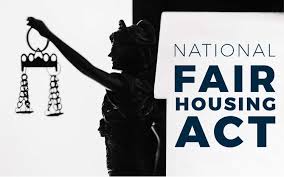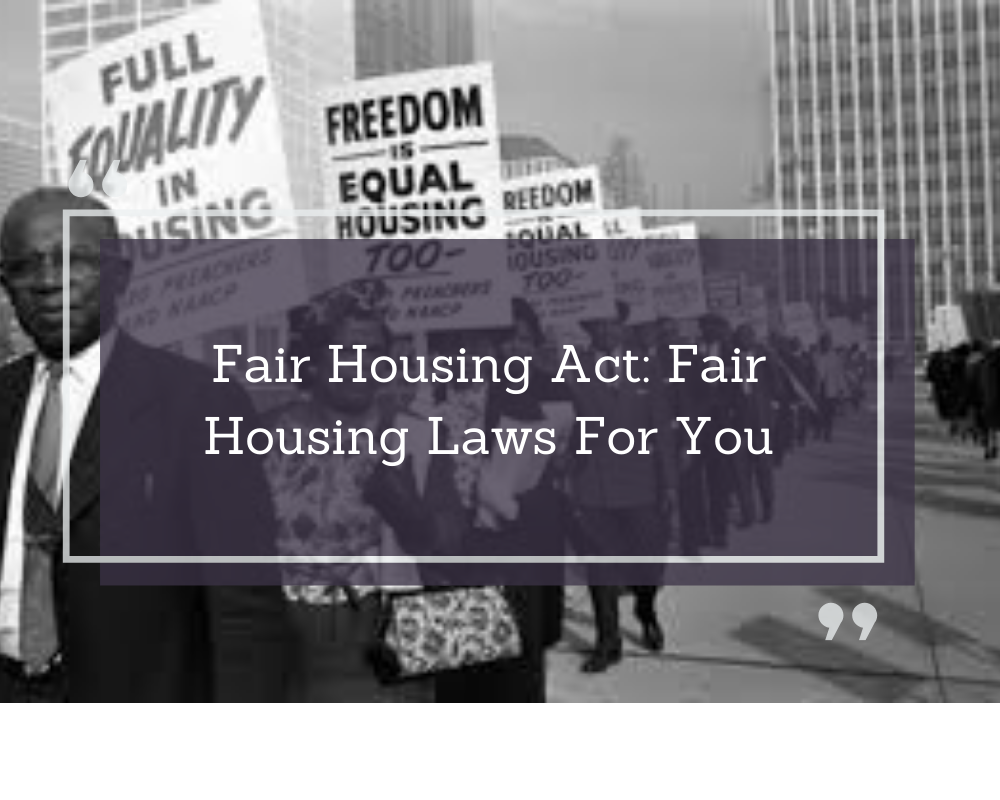Even when buying, selling, or renting property there are laws in place to ensure all members of a protected class receive equal treatment under the Fair Housing Act regulations. Being aware of such laws can ensure an even playing field and real estate agents, landlords and lenders must abide by them, but so must you!
What Is the Fair Housing Act (FHA)?
The Fair Housing Act is a federal statute that guarantees fair housing protections to renters, buyers, and borrowers alike. First adopted as part of the Civil Rights Act in 1968, then revised in 1988 with additional enforcement means and protected classes such as disability status or familial status status.
What Does Equal Housing Opportunity Mean?

Equal housing opportunity refers to the provision that all persons should have equal chances when selecting housing options, under a law administered and enforced by the Office of Fair Housing and Equal Opportunity (FHEO) within HUD; enforcement responsibility was given by the Fair Housing Act of 1968.
What Is Housing Discrimination?
Housing discrimination occurs whenever anyone treats you differently because you belong to one or more protected classes. Most parties involved with your real estate journey, from real estate agents, sellers, landlords, and property management companies through lenders are bound by Fair Housing Act regulations as well as local and state regulations depending on where your search occurs or occurs.
Fair Housing Act violations can arise throughout all stages of buying and renting real estate – from advertising, while browsing listings, through to application submission, financing approval process or credit chec,k and even during eviction proceedings.
Examples of Housing Discrimination
Much of the Fair Housing Act’s purpose is to ensure protected groups are treated fairly by lenders when applying for home loans traditionally an area plagued with discriminatory lending practices. A few instances of illegal discrimination include:
- Appraisal Discrimination: Appraisers cannot devalue a home based on its protection class of homeowner.
- Mortgage Discrimination: This refers to refusing loans or financial assistance while withholding information regarding loans from applicants or withholding certain loan-related records from them.
- Rental and Sales Discrimination: Sellers and landlords cannot refuse to rent or sell to individuals based on protected classes; similarly, they should avoid favoritism — one reason writing “love letters” to sellers should not be done as part of business strategy.
What Classes Are Protected Against Housing Discrimination?
In terms of fair housing law, discrimination means treating someone differently because of membership in one or more protected classes. Beyond federal fair housing laws, state and local regulations may provide further protection to buyers, sellers, and renters in additional protected classes that go beyond what federal fair housing legislation offers. For instance below is an outline.
Federally protected classes:
- race,
- color,
- religion,
- sex,
- national origin
- familial status
- Physical or mental disability.
Protected classes under state and local law can include:
- Citizenship
- Age
- Veteran or military status
- Genetic information
- Sexual orientation
- Gender identity or expression
- Source of income (such as Section 8 housing choice vouchers or temporary rental assistance)
- Criminal records.
What should I do if I believe I have been discriminated against?
If you feel discriminated against in any of the ways discussed here or suspect other actions taken by property managers, landlords, real estate agents, brokers, or lenders might constitute discriminatory conduct, various resources at your disposal could assist.
- File a Report: To file a complaint about housing discrimination or harassment in your community, visit HUD.gov or connect with local advocates through the National Fair Housing Alliance (NFHA).
- Get more info from local housing agencies: HUD provides a listing of housing counselors located nearby, who offer more than discrimination claims: home buyer education workshops and pre-purchase counseling are just two other services these professionals offer.
- Consult an Attorney: Before initiating any Fair Housing Act complaint, it’s wise to seek legal advice. When filing such complaints it would also benefit greatly to hire an experienced lawyer for guidance and representation.
Find People You Trust: If you experienced housing discrimination from your real estate agent, mortgage broker, or lender, now may be the time to find someone new who will assist in your home search. Ask friends, family, and colleagues for referrals of real estate professionals they have experienced first-hand who you could entrust your search with. Remember they should work for YOU only. You can also contact Las Vegas Real Estate Sales for help!






